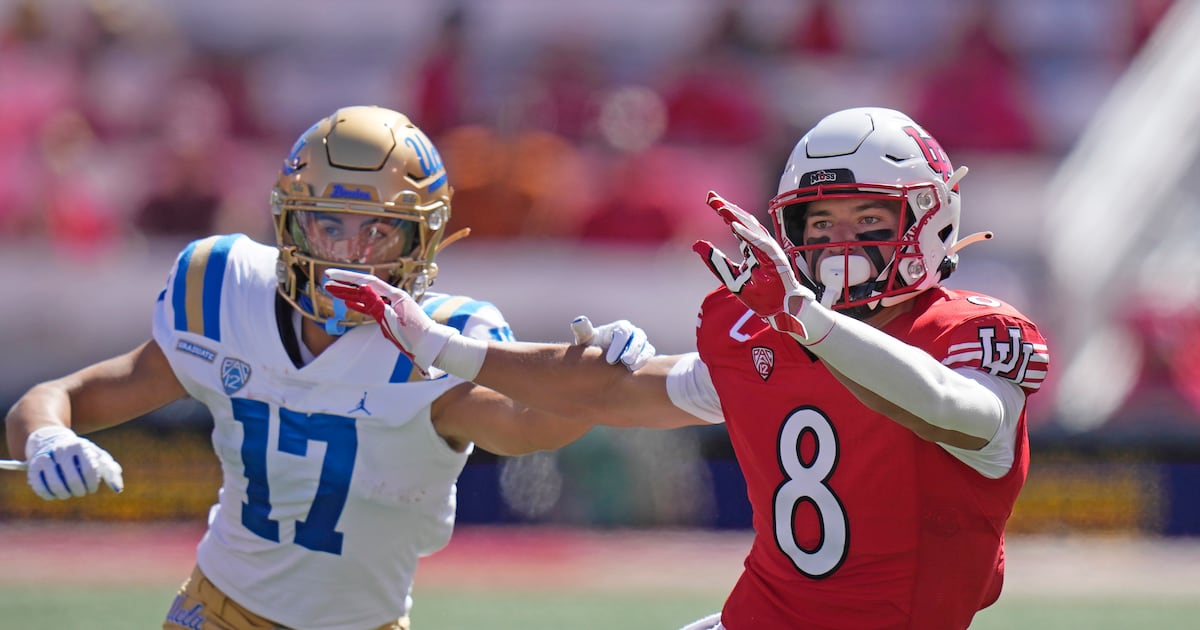The Utah Utes-UCLA Bruins matchup is one of the more anticipated games nationally in Week 1, especially in the late window.
The intrigue lies in the debut of two transfer quarterbacks with their new teams — Utah’s Devon Dampier and UCLA Nico Iamaleava.
Iamaleava’s transfer saga was well-publicized and became one of the biggest topics of the college football offseason.
After helping Tennessee to a 10-2 regular season record and a College Football Playoff appearance in his second season in Knoxville, the Volunteers assumed that he’d be their starter in the 2025 season.
In the NIL era, things can change fast.
According to a report from The Athletic, Iamaleava’s camp and Tennessee couldn’t agree on a revenue-sharing contract, and Iamaleava held out near the end of the Volunteers’ spring practice.
Holdouts are old hat in professional sports, but who could have seen this coming in college athletics a decade ago?
Iamaleava wasn’t the sole reason the Volunteers were in the playoffs, but he had a solid year, finishing the season with 2,616 yards and 19 touchdowns (with five interceptions) through the air and 358 yards and three scores on the ground.
Was he worth $4 million per year, though?
A source told The Athletic that Iamaleava was seeking a deal that would be “nearing” the top of the quarterback market at $4 million.
With the decision to hold out of practice and the amount of money he was asking for, Tennessee decided the juice wasn’t worth the squeeze and Iamaleava entered the spring transfer portal. The Volunteers had one of the nation’s best defenses last season and felt that it could win without Iamaleava.
Iamaleava landed at UCLA, which was in need of a quarterback, but his deal isn’t at the top of the quarterback market. On3’s Pete Nakos reported that Iamaleava’s compensation at UCLA is in the $1.2 million range.
In a strange twist, former UCLA QB Joey Aguilar transferred to Tennsesee and became the Volunteers’ new quarterback, while Iamaleava transferred to Westwood and will be the Bruins’ starting signal-caller.
UCLA enters the second year of the Deshaun Foster era — and its second season in the Big Ten Conference — after a 5-7 campaign, the same record Utah posted last year.
Adding to the similarities is the fact that both teams have new offensive coordinators. Change was needed after the Bruins scored just 18.4 points per game last season, so UCLA hired Tino Sunseri, who guided Indiana’s No. 2 scoring offense last season (41.3 points per game).
There are transfers aplenty on offense, including Cal running back Jaivian Thomas, Michigan State running back Jalen Burger, Utah running back Anthony Woods, Utah (and Cal) receiver Mikey Matthews and UCF receiver Titus Mokiao-Atimalala.
Meanwhile, the Utes, who scored just 23.6 points per game, hired New Mexico’s Jason Beck, who called the nation’s No. 4 most productive offense (484.2 yards per game).
On the other side, Dampier will be making his highly-anticipated debut for the Utes.
After last season’s offensive woes, it won’t take much for Dampier to dazzle Ute fans, especially if he can keep up last season’s production while cleaning up turnovers and improving his passing accuracy.
Dampier threw for 2,768 yards and 12 touchdowns (on 58% accuracy with 12 interceptions) and ran for 1,166 yards and 19 touchdowns. His statistical achievements didn’t just come against Mountain West teams, either.
He threw for 260 yards and three touchdowns, with two interceptions, on 57% passing, and rushed for 130 yards and two scores against Arizona. Against Washington State, Dampier threw for 174 yards and a score on 44% accuracy, but won the game on the ground, rushing for 193 yards and three touchdowns on 28 carries, including the game-winning touchdown.
Aside from Utah’s offensive line, which returns every starter, including tackles Spencer Fano and Caleb Lomu, nearly every player that will start on offense on Saturday is new.
That includes wide receivers Tobias Merriweather (Cal) and Larry Simmons (Southern Miss) and running backs Wayshawn Parker (Washington State) and NaQuari Rogers (New Mexico).
It’s been quite awhile since the Utes started the season with a new offensive coordinator, and while coach Kyle Whittingham says Utah’s offense will be “almost a carbon copy of what New Mexico was in philosophy,” there were still be new wrinkles that Beck has added this offseason.
Saturday’s clash is one of just five between two Power Four teams that day and will cap off the first week of college football with a 9 p.m. MDT kickoff.
The immediate test out of the gate could tell us a lot about both teams — especially on offense.
How will Iamaleava fare on a new team with a short acclimation period? How will Dampier, and Utah’s offense, play against a Power Four opponent? How will Beck’s offense differ from Ludwig’s?
All of these questions, and more, will be answered in just six days at the Rose Bowl.

